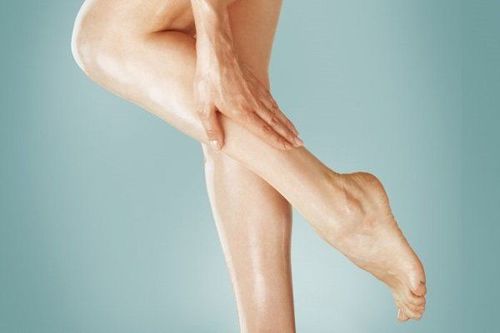Sweating is one of the body’s important excretory and temperature-regulating functions. In most cases, sweat tastes salty, so people often assume that is its natural taste. So, what happens if sweat doesn't taste salty?
1. What is considered normal sweating?
Everyone knows that sweating is a normal bodily function that happens daily. The process of sweating is seen as a mechanism to eliminate waste products and to regulate body temperature. Sweat is produced most during hot weather or when the body engages in intense physical activity.
On average, a person has between 2 to 4 million sweat glands, with the highest density on the palms of the hands and soles of the feet. The number of sweat glands remains constant over time, meaning that children have more density of sweat glands per square meter of skin compared to adults — about 8 to 10 times higher. Some people may produce only half a liter of sweat per hour of intense activity, while others may sweat up to 3–4 liters, and both cases are considered normal. However, excessive sweating due to heatstroke or a dangerous physical condition, known as "cold sweating," requires more attention.
2. Is it normal if sweat doesn't taste salty?
As mentioned, sweating helps the body excrete toxins and excess substances. Additionally, when sweat evaporates from the skin, it cools the body down when its temperature rises too high. Most of the time, sweat has a characteristic salty taste, primarily because of the waste products, excess substances, and toxins in the body. Besides the salty taste, some people may experience sweat that tastes bland or has no taste at all. When this happens, many people worry whether it could negatively affect their health.
Salty sweat is usually due to inadequate water intake, an unhealthy diet and daily habit, or because the body is excreting more toxins than usual. Moreover, research shows that salty sweat can indicate a sodium deficiency, as salt is directly excreted through sweat. Therefore, sweat that doesn’t taste salty poses no harm to the body.

3. Ways to Help Your Body Control Sweat Better
Observing your sweating patterns is a way to monitor your health. Below are some methods to help you manage the saltiness and odor of sweat more effectively:
- Maintain a balanced and healthy diet: Consuming adequate and balanced nutrients will improve your overall health, reducing excessive sweating as the body won’t need to excrete excess substances.
- Proper salt intake: Although salt is a common seasoning, excessive consumption can increase the risk of various serious health issues, such as cardiovascular diseases, strokes, and high blood pressure. The recommended daily salt intake is around 200–500 mg, which helps maintain proper bodily functions and prevents conditions like goiter (a mass in the neck area).
- Drink enough water (2 liters per day): Staying well-hydrated not only helps keep your body healthy but also prevents sweat odor and reduces the risk of dehydration due to sweating.
- Keep your body clean after sweating: This helps remove waste and excess substances excreted through sweat, keeping your skin pores clear. However, avoid showering immediately after sweating; wait about 30 minutes for the sweat to dry completely to prevent thermal shock.
In summary, sweat that lacks a salty taste or tastes very bland is not a sign of any disease and is entirely normal. To better control sweating and maintain overall health, ensure a balanced diet and proper lifestyle habits.
To arrange an appointment, please call HOTLINE or make your reservation directly HERE. You may also download the MyVinmec app to schedule appointments faster and manage your reservations more conveniently.













